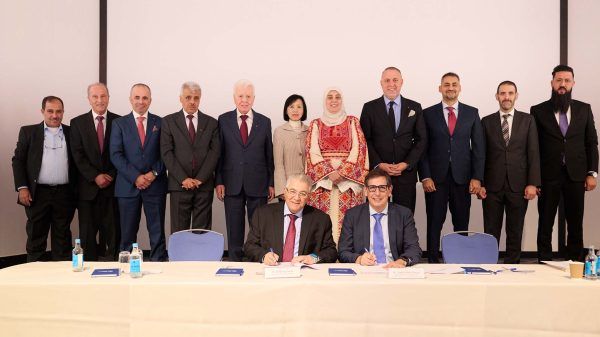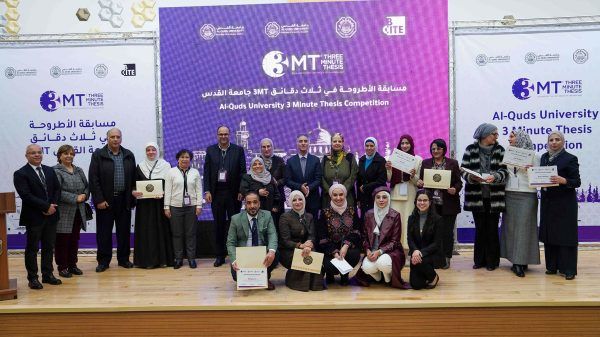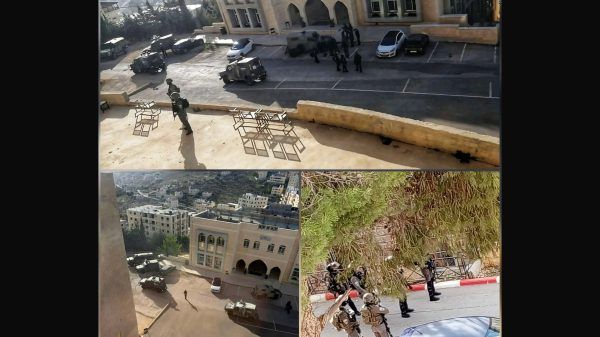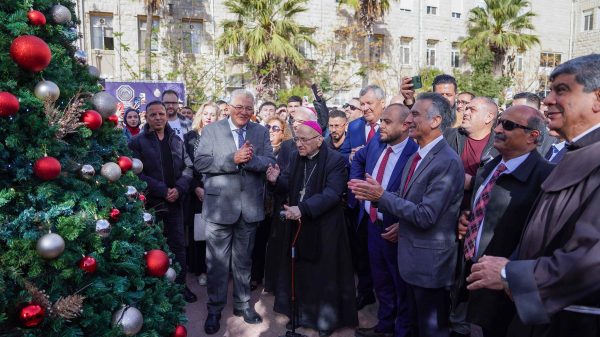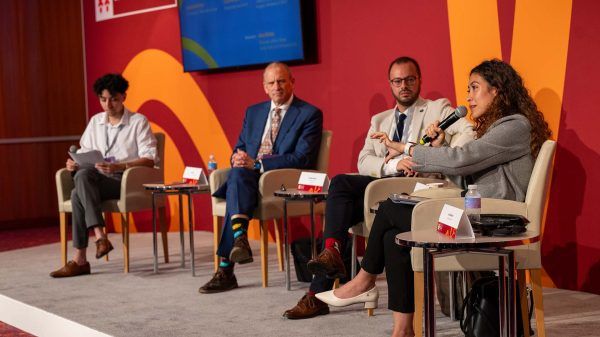The community of Al-Quds University had more to enjoy than the beautiful weather and landscape. Al-Quds Human Rights Clinic, which is a unit in the faculty of law of Al-Quds University organized a "human rights bazaar" right at the main entrance of Al-Quds University. Students, professors, as well as others entering the university walked through booths of more than 25 Palestinian and international human rights organizations working in Palestine and Israel. These organizations distributed books, leaflets, brochures, CDs, and other material related to human rights issues or human rights advocacy in the occupied Palestinian territory and/ or Israel.
As he walked through the booths of the Bazaar, the president of Al-Quds University, Dr. Imad Abu Kishek said that the Bazaar "serves the strategy of Al-Quds University in serving the human rights cause." He further encouraged the participants from other Palestinian university as well Al-Quds Human Rights Clinic to collaborate further and create stronger ties.
Dr. Munir Nuseibah, the director of Al-Quds Human Rights Clinic said that "the Clinic aims at creating stronger links between the university community of students, professors and workers and the local human rights society in Palestine."
Dr. Omar Rahhal, the director of Shams, one of the human rights organizations participating in the event, said that this bazaar supports knowledge exchange between the participating human rights organizations and expressed that he believes that the bazaar creates a good environment for law students and representatives of human rights organizations to meet. He added that Al-Quds University is a pioneer in organizing creative human rights activities and in serving human rights.
During the bazaar, the Clinic organized a screening of "The Wanted 18," by the Palestinian director Amer Shomali and the Canadian director Paul Cowan. This film told the extraordinary story the town of Beit Sahour in the West Bank, which sought some level of independence and self sustainability during the first Intifada (late 1980s and early 1990s). Their initiative was to buy 18 cows and to distribute their milk to the villagers. However, the occupation forces in the West Bank saw this initiative as a security threat and did its best to find and confiscate the cows. The people of Beit Sahour resisted this attempt and managed to hide the cows from the occupation forces.
After the screening of the film, the famous Palestinian philosopher and previous president of Al-Quds University, Prof. Sari Nusseibeh, led a discussion about popular resistance. He hosted Dr. Jad Ishaq, the director of the Applied Research Institute- Jerusalem and Mr. Jamil Barghouthi, and asked them whether the experience Palestinian can or should be repeated. Both speakers stressed that popular resistance was quite successful in the first Intifada. According to Jad Ishaq, we would have had a functioning Palestinian state in place if the Intifada had not ended in the way it did.
The panel discussion stimulated lively discussion and many probing questions from those in attendance. Discussion focused on strategy and vision: questioning what large-scale Palestinian organization would require, what would be its aims, and what would be necessary to achieve the desired outcome. During the discussion, different strategies of resistance were discussed; among them: boycott, the need for popular education, steadfastness, offering safe haven to fugitives, and intifada.
Dr. Ishaq shared that the occupation forces earn $400 million in transport permit costs per year. That Palestine loses $7 billion per year in lost economy due to the occupation. He reminded people in attendance that it has been 20 years since Oslo was signed and that it is time to plan for a self-sufficient nation in this age of globalization. The consensus from all those who spoke was that we are now in a time where we must think of Palestinian identity first and party affiliation only in that context. People left the conversation enriched and discussed the issues brought up during the panel long after they’d left the auditorium.



